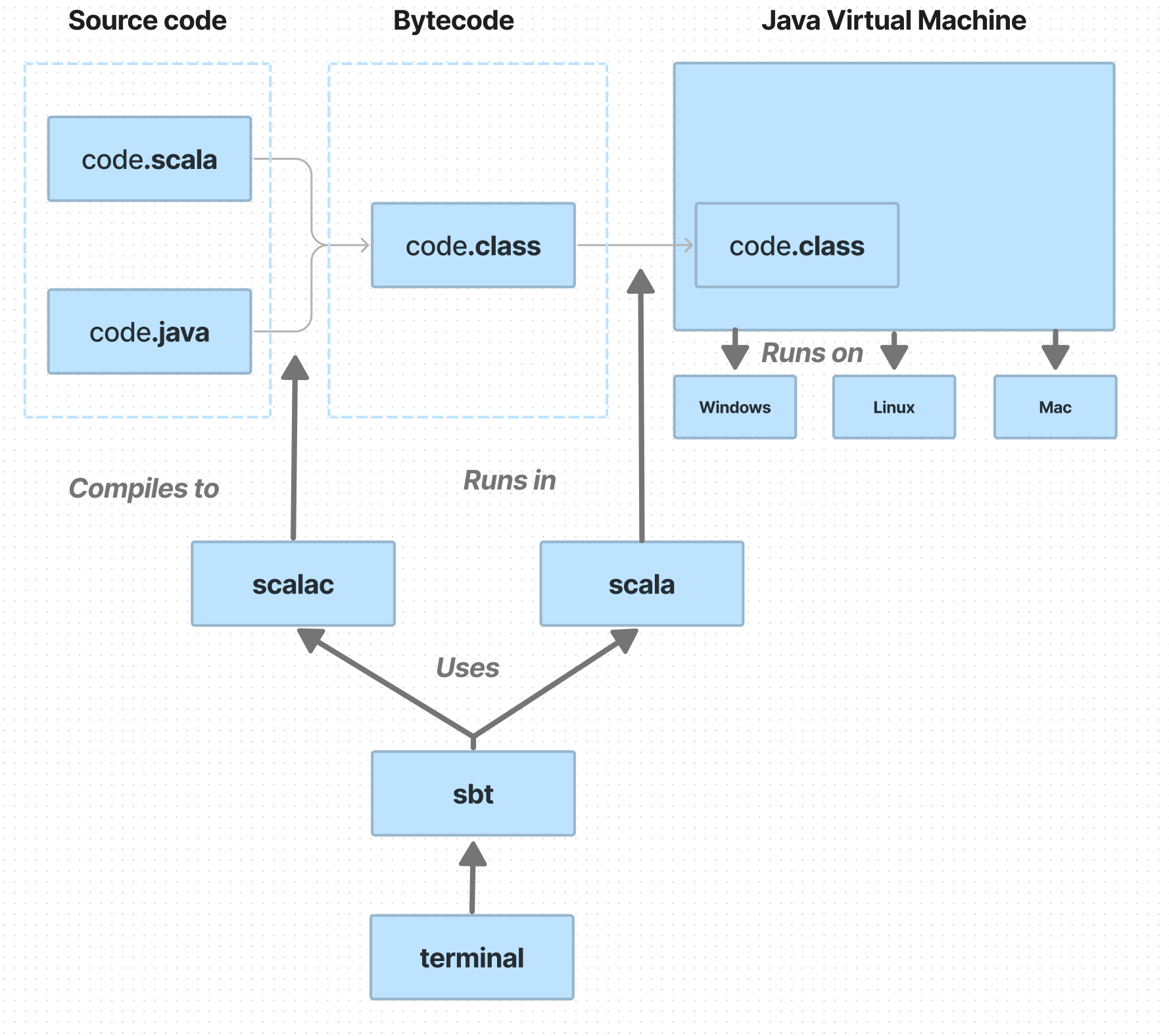For running human-written code, it must be translated into machine-readable instructions. And then the machine will able to execute them.
In essence, the process of launching the program consists of compilation and execution. In our case, we need to convert Scala code into Java bytecode and execute the result on Java Virtual Machine.
So that not to launch these processes manually, we usually use sbt application, which calls different programs.
Let's explore what happens once we've typed $sbt run in the terminal.

Step 1: Compilation
- sbt calls Scala compiler (scalac)
- scalac converts Scala source code into Java bytecode
The source code is stored in .scala files. After the compilation, we get also the .class files. They are regular Java class files containing Java bytecode to be executed by the Java Virtual Machine (JVM). By default, scalac generates the class files into the current working directory.
Step 2: Execution
- once the files have been compiled, sbt calls
scala - Scala calls JVM
- JVM runs the resulting bytecode
Output: Hello, world!
As we have learned, we just need to type sbt run in CLI and sbt will take care of the rest.
